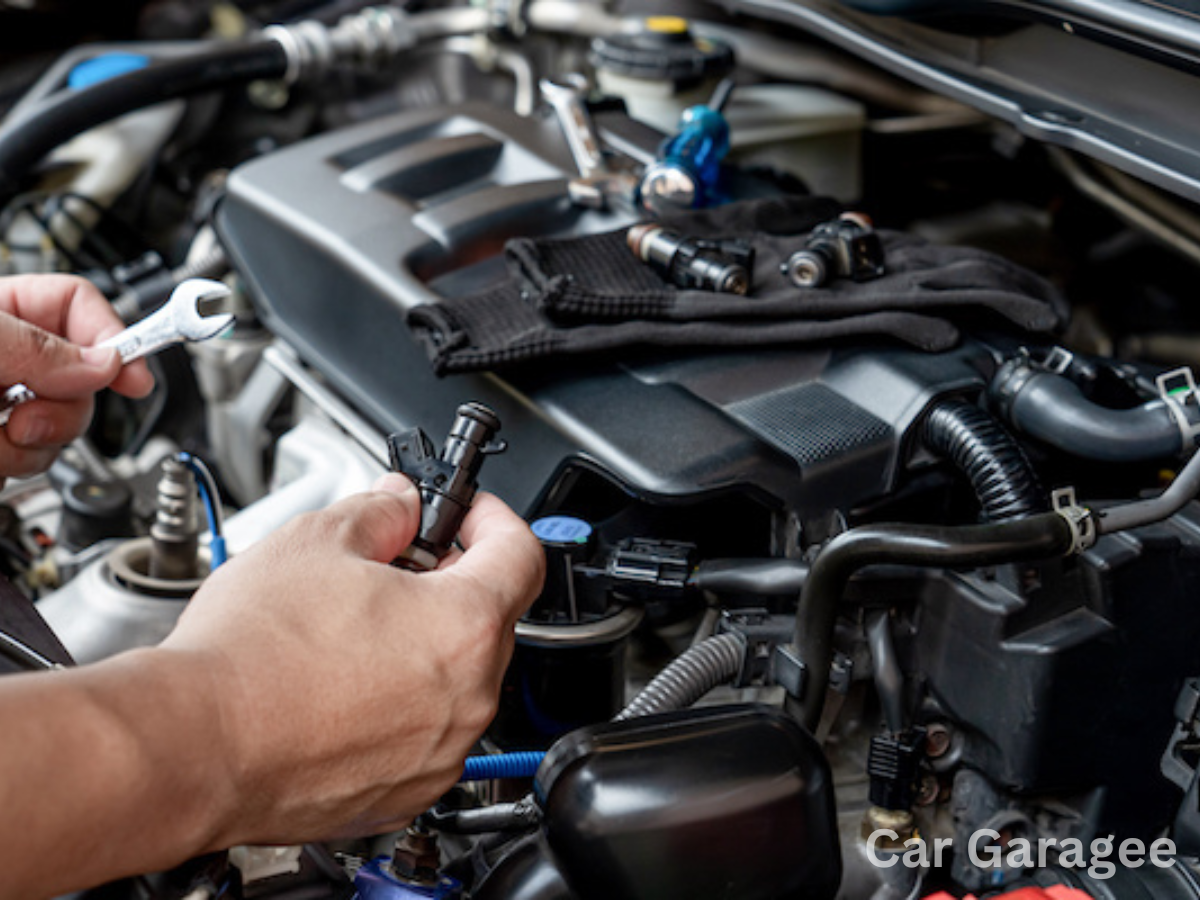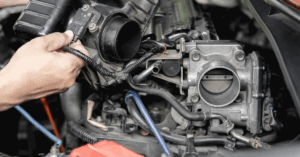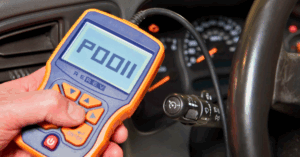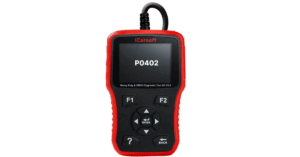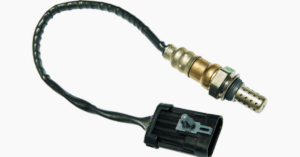Taking care of your car can sometimes feel like a never-ending task, with countless parts and systems to keep in check. Modern vehicles, especially those with direct fuel injection engines, have complex systems that require special attention to ensure they run smoothly. One service that has been gaining attention recently is fuel induction service. But what exactly is it? How can you tell if your car needs it? And, importantly, what will it cost? Let’s dive into everything you need to know about fuel induction service to help you keep your car in top condition without breaking the bank.
What is a Fuel Induction Service?
A fuel induction service is a cleaning procedure to remove carbon deposits and other buildups from your car’s fuel system. These buildups occur naturally over time as your engine runs. They can negatively impact your car’s performance, fuel efficiency, and emissions. This service is essential for keeping your vehicle running smoothly.
The Science of Your Vehicle’s Fuel System
Your car’s fuel system consists of various components that work together to deliver the right mix of fuel and air to the engine. These components include the air filter, fuel filter, intake manifold, throttle body, fuel injectors, fuel pump, and fuel tank.
The throttle body is responsible for mixing air and fuel, igniting the engine to create the power needed to drive your car. However, this process can result in carbon deposits and unburned fuel accumulating in the system over time, leading to performance issues.
The Fuel Induction Process
During a fuel induction service, professional cleaning agents remove debris and deposits from your car’s fuel system. The service involves carefully cleaning the throttle body to eliminate buildup that can restrict airflow. The fuel injectors and air intake components are also cleaned using specialized chemicals to enhance efficiency.
Additionally, the intake manifold and related valves are inspected and cleaned to ensure they are deposits-free. This comprehensive cleaning process helps restore your engine’s performance and fuel efficiency, allowing it to operate more smoothly and cleanly.
Fuel Induction Service Cost
Knowing the cost of a fuel induction service can help you decide the best way to take care of your car. A full-fuel induction service usually costs between $150 and $170. The price can change depending on how much carbon buildup is in your engine and how it affects other parts. This full-service option ensures your car’s fuel system is thoroughly cleaned and working well.
You can use a simple fuel system cleaner that costs between $20 and $40 per bottle to save money. You add this cleaner to your fuel tank, which helps reduce some of the carbon deposits in the system. While it doesn’t provide fuel induction service, it can help keep your car in good condition during more thorough cleanings. You can do this yourself every 5,000 to 10,000 miles to keep your vehicle running smoothly.
Paying for a complete fuel induction service can give you peace of mind by ensuring your car’s fuel system is clean and efficient. Regular maintenance, whether through a full service or occasional cleaning, can help your engine last longer and improve your car’s overall performance.
READ MORE:
What is Brake Boosting? A Detailed Guide
Why Your Car Brakes Squeak in Reverse?
How to Reset VSC Light Lexus? A Complete Guide
How Often Should You Do a Fuel Induction Service?
A fuel induction service is typically recommended every 30,000 to 60,000 miles, based on what your car’s manufacturer suggests. This service differs from an oil change, which you must do every 3,000 to 7,000 miles. Because you don’t need to do it as often, the fuel induction service cost is more affordable, and it helps your engine last longer and runs better, saving you money on gas.
However, you don’t have to wait until you reach 60,000 miles if your car isn’t running well. If you notice your gas mileage has dropped or your engine is having issues, getting a fuel induction service might be a good idea. This service is a cost-effective way to fix problems and prevent more significant issues from developing.
For example, getting a GDI (Gasoline Direct Injection) fuel induction service can be cheaper in the long run than fixing an engine struggling because of too much buildup. By keeping up with regular maintenance, like fuel induction services, you can help your engine stay healthy and perform at its best.
Is Fuel Induction Service Necessary?
Whether you need a fuel induction service depends on how your car runs. Over time, carbon can build up in the fuel system, which might cause problems like poor performance, lower gas mileage, and higher emissions. If you notice these issues, a fuel induction service can help fix them.
Not every car needs a fuel induction service right away. If your vehicle runs well and you haven’t seen any gas mileage or performance drop, you might not need this service now. However, cars are more likely to have carbon buildup as they age, especially if you drive a lot or use cheap fuel.
Keeping an eye on how your car performs can help you decide if a fuel induction service is necessary. Regular maintenance can help your vehicle run smoothly and avoid problems in the future.
Signs Your Car Needs a Fuel Induction Service
It’s important to keep your car running smoothly, and sometimes, that means getting a fuel induction service. Aside from the fuel induction service cost, here are some key signs that your car might need this service.
1. Increased Fuel Consumption
If your car uses more fuel than usual, it may be because the fuel injectors are not spraying fuel properly. Instead of a fine mist, the fuel might come out in larger droplets, disrupting the combustion process and causing the engine to use more fuel.
2. Check Engine Light
If your car’s check engine light comes on, it might indicate a problem with the engine, possibly due to carbon buildup. This buildup can block air from entering the engine or create hotspots, leading to overheating.
3. Loud Engine Noise
If your engine is noisier than usual, it could be because the fuel system is clogged. This blockage makes you press the accelerator harder to achieve normal performance, which puts extra load on the engine and creates more noise.
4. Slow or Difficult Starts
If your car takes a long time to start or has trouble starting, it might be due to clogged fuel injectors. These injectors deliver fuel to the engine, and if they are blocked, they can prevent the right amount of fuel from reaching the engine, leading to hard starts.
5. Excessive Exhaust Smoke
A blocked combustion chamber can cause unburned fuel to leak into the exhaust system, increasing smoke. This is a clear sign that the fuel system needs attention.
6. Car Stalls While Driving
When carbon buildup clogs the fuel system, it can cause the engine to stall due to an insufficient fuel supply. This is a sign that the fuel system needs cleaning.
7. Jerking and Shaking
When you notice your car jerking or shaking, especially when you accelerate or decelerate, it might be due to a clogged combustion chamber. This can disrupt the fuel flow, making the engine run unevenly and causing these symptoms.
FAQS
1. What is the cost of a fuel induction service?
A full-fuel induction service typically costs at least $150. In contrast, a bottle of fuel cleaner, which you can add to your fuel tank, usually costs between $20 and $40. Using a fuel cleaner every 5,000 to 15,000 miles can help prevent carbon buildup in your fuel system. Still, it’s not a substitute for a professional fuel induction service.
2. Is a fuel induction service the same as an oil change?
No, a fuel induction service is different from an oil change. While everyone knows they need regular oil changes, fuel induction services must be more well-known. They are recommended every 60,000 miles, though you should check your car’s manual for specific advice. This service helps your engine run smoothly by cleaning out carbon buildup that affects performance.
3. How long does a fuel induction service take?
A fuel induction service usually takes about an hour. The time can vary depending on the buildup and the complexity of your vehicle’s air intake system. However, this service is much quicker and cheaper than rebuilding the engine or cleaning individual parts due to excessive carbon deposits.
4. What are the signs of dirty fuel injectors?
Dirty fuel injectors can cause several problems in your car. You might notice the engine misfires, meaning it doesn’t run smoothly. Your vehicle might idle roughly, your gas mileage might decrease, or the RPM needle on the dashboard might move erratically. Sometimes, your car might not start, or the check engine light might come on. You might also notice a fuel leak, a clear sign of injector problems.
5. Does fuel injection improve gas mileage?
Yes, fuel injection can improve gas mileage. Fuel injectors spray a fine mist of fuel into the engine. The finer and more controlled the spray, the better the fuel economy. A clean and efficient fuel induction system helps your engine use fuel more effectively, improving mileage.

Mian Hashir is a passionate automotive enthusiast and the lead author at Car Garagee, a website dedicated to providing in-depth car reviews, maintenance tips, and the latest news in the automotive world. With years of experience in the industry, Hashir combines his technical knowledge with a love for cars to deliver insightful and engaging content. Whether you’re a car owner or a curious reader, Mian Hashir’s articles help readers make informed decisions, from choosing the right vehicle to understanding how to keep it in top condition.

